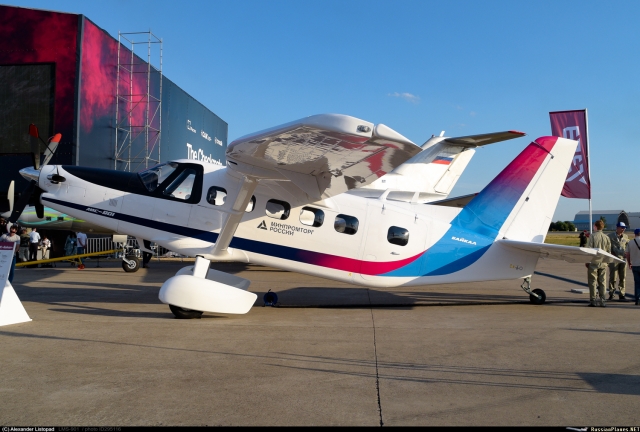 First flight of LMS-901 Baikal
First flight of LMS-901 Baikal
On 30 January 2022, the first flight prototype of the LMS-901 Baikal light multi-purpose aircraft made its first flight from the Yekaterinburg (Aramil) airfield. The flight took place at an altitude of 500 meters and lasted about 25 minutes. In accordance with the flight mission, the test pilot Valentin Lavrentiev performed a basic set of maneuvers to test the stability and controllability of the aircraft in the air.
The future manufacturer of the aircraft, LLC Baikal Engineering, a subsidiary of JSC UZGA (Ural Civil Aviation Plant in Yekaterinburg), received a contract from the Minpromtorg (Ministry of Industry and Trade of Russia) for the development of a light single-engine turboprop multifunctional aircraft for nine passengers, designated as LMS-901.
The actual development of the aircraft was carried out by the OSKBES (Special Design Bureau of Experimental Aircraft Engineering) of the MAI Moscow Aviation Institute (National Research University) and the first prototype of the LMS-901 Baikal was manufactured at the MAI production facility in Moscow. Two more examples of the aircraft will follow, one flight prototype and one static testbed.
The first prototype of the LMS-901 was presented at the MAKS-2021 International Aviation and Space Salon in Zhukovsky, equipped with a General Electric H80-200 turboprop engine which is basically an upgraded version of the former Czechoslovak Walter M601 engine. Series production aircraft are expected to be equipped with a domestic powerplant, most likely the VK-800S turboprop engine developed by UZGA, starting from 2024.
In accordance with the terms of reference, the cost of the LMS-901 serial model should not exceed 120 million RUB (USD1,6 million) in 2020 prices, and the cost of a flight hour shall not exceed 40 thousand RUB (US526).
Twenty percent stake in LLC Baikal-Engineering belongs to the company KAI (Kazakhstan Aviation Industry), the total investment in the project from the Kazakh side amounts to 1 billion RUB (USD13,1 million).
The joint agreement of these two EAEU parties in the field of civil aircraft construction helps create conditions for the promotion of the aircraft outside the Russian Federation and at the same side gives Kazakhstan the opportunity to develop aircraft construction and become a participant in the chain of cooperation in the aviation industry. KAI will have access to all design documentation and will get a license for the production of the aircraft, as well as organize export deliveries from the production site in Kazakhstan to bypass potential sanctions risks when selling the aircraft to third countries.
Photo by Alexander Listopad (via russianplanes.net)

